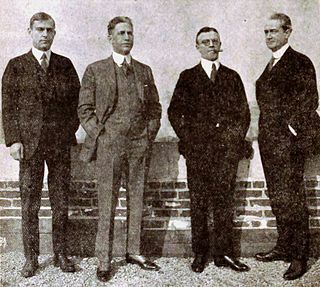A Quote by Larry Niven
For each human being there is an optimum ratio between change and stasis. Too little change, he grows bored. Too little stability, he panics and loses his ability to adapt. One who marries six times in ten years won't change jobs. One who moves often to serve his company will maintain a stable marriage. A woman chained to one home and family may redecorate frantically or take a lover or go to many costume parties.
Quote Topics
Ability
Ability To Adapt
Adapt
Being
Being There
Between
Bored
Chained
Change
Company
Costume
Each
Family
Go
Grows
His
Home
Home And Family
Human
Human Being
Jobs
Little
Loses
Lover
Maintain
Many
Marriage
May
Moves
Often
Optimum
Parties
Ratio
Serve
Six
Stability
Stable
Stasis
Take
Ten
Ten Years
Times
Too
Will
Woman
Years
Related Quotes
Change is never fast enough to satisfy us. I still hear too many stories of women who go back to work too soon, but I do believe that we have been able to change the paradigm in attitudes towards family leave in that it's no longer a nice thing to do for women, it's a must do for competitiveness, and that's a big change over the last seven years. Changing it into an economic issue is a big sea change in the last seven years.
A change initiative can fail for multiple reasons - in fact, there are just too many things that can go wrong. The focus of the initiative might be wrong - too narrow or too broad. The initiative might be poorly executed or under-resourced. But most often, a change initiative fails because it hits a behavioral impasse. Something in the culture of the company is in conflict with the objective or execution of the initiative.
A lot of people complain about yesterday. We have no power to change yesterday. But this very day, 30 years later, is what we can control and decide. Change yourself, take baby steps, and stay determined for ten years. I thank the times of change and everyone’s complaints. Because when everyone is complaining, that is your chance, an opportunity. It’s only in times of change that someone can be clear of what he has and wants, and what he needs to give up.
The average mind requires a change of environment before he can change his thought. He has to go somewhere or bring into his presence something that will suggest a new line of thinking and feeling. The master mind, however, can change his thought whenever he so desires. A change of scene is not necessary, because such a mind is not controlled from without. A change of scene will not produce a change of thought in the master mind unless he so elects.
People say, 'Why is he bored with her?' Because he's a human being, that's why; same way his wife is bored with him. That is marriage - anything that's supposed to be forever, your going to get bored with it. And there is nothing wrong with it, so don't take it personal; if you are with somebody for ten years and they are not bored with you? Then something is wrong with them.
Let's not forget that for thousands of years the institution of marriage has been between a man and a woman. Until quite recently, in a limited number of countries, there has been no such thing as a marriage between persons of the same gender. Suddenly we are faced with the claim that thousands of years of human experience should be set aside because we should not discriminate in relation to the institution of marriage. When that claim is made, the burden of proving that this step will not undo the wisdom and stability of millennia of experience lies on those who would make the change.
Think of managing change as an adventure. It tests your skills and abilities. It brings forth talent that may have been dormant. Change is also a training ground for leadership. When we think of leaders, we remember times of change, innovation, and conflict. Leadership is often about shaping a new way of life. To do that, you must advance change, take risks, and accept responsibility for making change happen.
There are so many kinds of madness, so many ways in which the human brain may go wrong; and so often it happens that what we call madness is both reasonable and just. It is so. Yes. A little reason is good for us, a little more makes wise men of some of us--but when our reason over-grows us and we reach too far, something breaks and we go insane.





































